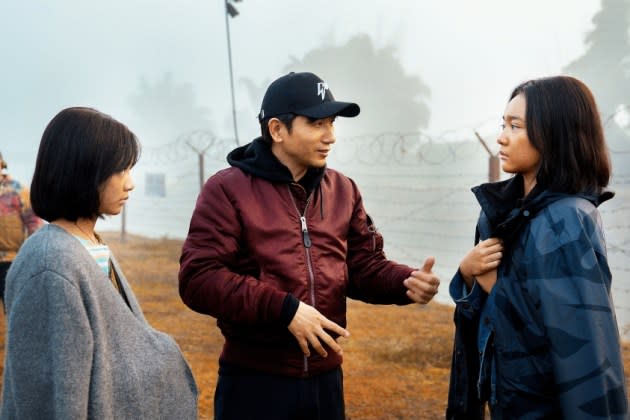Midi Z Wraps ‘The Unseen Sister,’ First Mainland Chinese Movie, Sets Sights on Hollywood Debut (EXCLUSIVE)

Midi Z, the Taiwan-based Myanmar-born director whose career has expanded from no-budget documentaries and dramas to 2019 Cannes title “Nina Wu,” has wrapped “The Unseen Sister,” his first mainstream film in Mainland China.
As with “Nina Wu,” the protagonist is an actress successfully enduring various pressures and humiliations at work. But in “Unseen Sister” her artifice is threatened by an anonymous attempt to extort her and the sudden reappearance of her long-lost sister. The sister, who had been in Myanmar, brings with her incidents and revelations from the past as well as hints of a larger crisis linking the seemingly coincidental events of her return and the blackmail.
More from Variety
For the dual lead roles Z (aka Midi Zhao, aka Zhao Deyin) secured the services of rising Chinese actor Zhao Liying (“The Story of Xing Fu,” “Wild Bloom”) in the role of the actress and Xin Zhilei (“The Rescue” and Wong Kar-wai’s TV series “Blossoms Shanghai”) as her sister.
Production, which wrapped earlier this month, took place in both Beijing and Yunnan province in the Southwest of China. The setting, close to the Myanmar and Thai borders, is both an important backdrop and integral to the story, adapted from the novel “Da Qiao Xiao Qiao” by Zhang Yueran and written for the screen by Xu Yue, Zhang and the director.
The film is produced by Yan Yunfei (aka Dun He) and Ma Ning for Turan Movie. The film will be presented by Linmon Pictures, the theatrical arm of stock market-listed mainland Chinese TV studio Linmon Media. Linmon Pictures is also handling the film’s rights sales and festival bookings until further notice, though the company may consider bringing on board a third-party sales agent before the film’s anticipated completion in middle of the year.
“This is both a film that is quite close to my own personal background and my most commercial picture to date,” Z told Variety. “It is quite suspenseful and is shot in Mandarin, but is not really targeted at Chinese audiences. Foreign audiences won’t have a problem at all.”
“I’ve been trying to make it for many years and had it largely developed by 2018. I expected to make it before I was interrupted by getting the green light for ‘Nina Wu’.”
The shift to a mainland China setting and production team, does not seem to faze Z, who talks of a painstaking casting process and Zhao Liying as “the most important part” of making the movie.
Born of Chinese descent in Myanmar, Z relocated to Taiwan when he was 16 and became a naturalized Taiwan citizen. But he shot several documentaries and his first fiction films “Return to Burma,” “Poor Folk” and “Ice Poison” between Myanmar and Taiwan, before making his breakout title “The Road Mandalay” with Thailand as a location substitute for Myanmar. After that, he delivered a fierce critique of sexism and film industry patriarchy with Taiwan-set “Nina Wu.” His latest completed work is another documentary “The Clinic,” which screened at the recent IDFA.
“I’m a Chinese. Working in the mainland was not so difficult for me,” says Z. “I’ve gone from films made with one man and a camera to this, where we had crew of 300 and a 55-day shoot.”
After “Nina Wu” he was snapped up for international representation by CAA. “I had a lot of offers and I’ve developed some projects in the U.S.,” he says. “So, next summer I aim to do my first Hollywood movie.”
Best of Variety
Sign up for Variety’s Newsletter. For the latest news, follow us on Facebook, Twitter, and Instagram.

